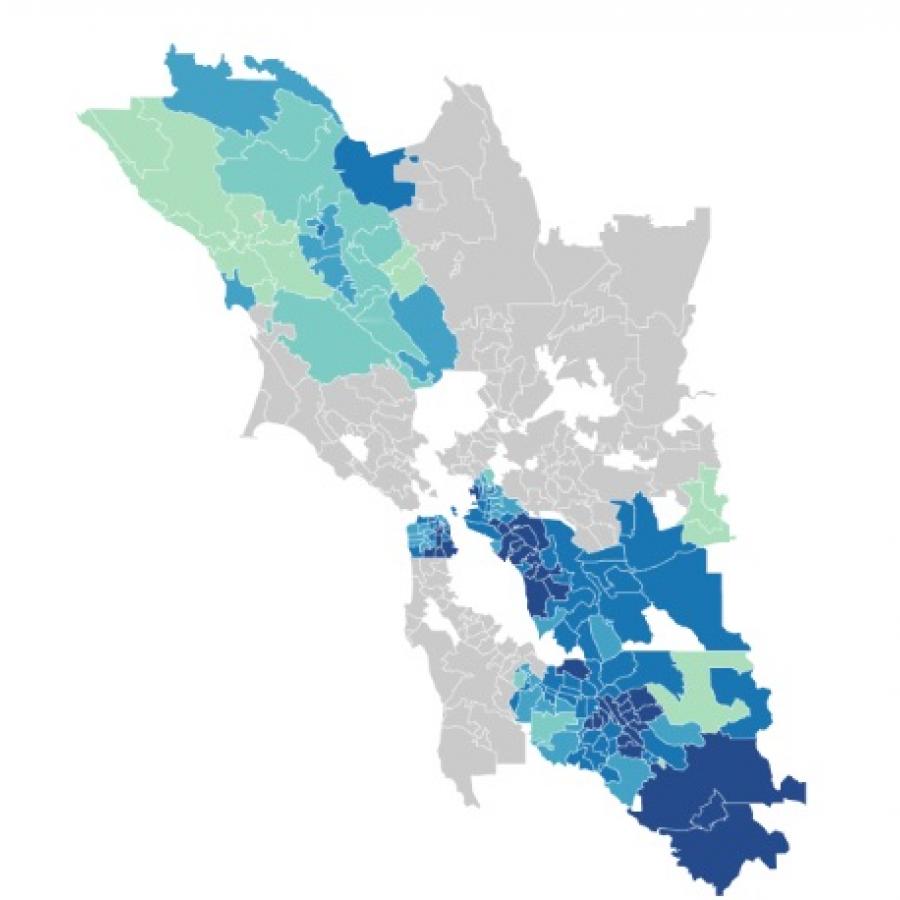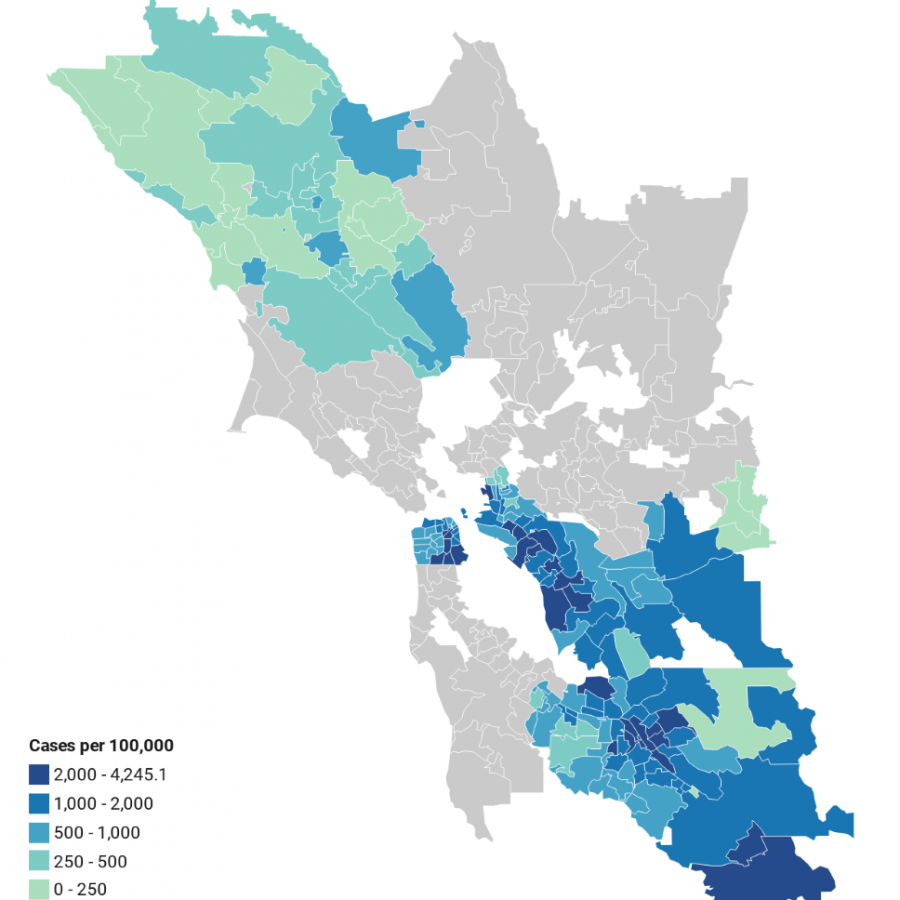Examining Affordability for Asian American and Pacific Islander Renters in Metro America
Dear Atlas users,
Atlas data shows that at least half of renters are currently rent burdened in 57 of the 100 largest cities in the United States. Research has shown that rent-burdened households are more likely to experience financial instability and be at risk of eviction. Through our research, we continue to explore how housing unaffordability impacts families across the nation. Here are the latest updates from the Atlas:
New Atlas Research Illustrates The Uneven Geography of Affordability for Asian American and Pacific Islander Renters
The second report in our series exploring the changing geography of opportunity in American metropolitan regions indicates that Asian American and Pacific Islander (AAPI) renters experienced an uneven distribution of housing affordability across ethnic groups and geographic regions during the period between the Great Recession and the Covid-19 pandemic. Our analysis of changes in market rent and median household income for AAPI residents in the 100 largest US metros shows that AAPI residents have been disproportionately concentrated in the least affordable regions. It also underscores that AAPI communities’ relatively high median incomes can obscure the presence of many low-income AAPI renters who struggle with finding safe and secure housing. To further illustrate these findings, we explore the various housing challenges that AAPI residents face in the Honolulu, Atlanta, Philadelphia/New York, and Los Angeles metropolitan areas. Visit the project page to assess other resources, including a dashboard you can use to explore the differences between and within AAPI communities across the US.
An Equity Profile of Kalamazoo County
Kalamazoo County, Michigan, is growing more diverse. But our latest equity profile — developed in partnership with the Kalamazoo Community Foundation and local community leaders — details how a long history of racial discrimination and disinvestment in the region’s communities of color have created entrenched and persistent racial inequities in employment, income, wealth, education, health, justice, housing, and transportation. These growing gaps are costing the county an estimated $1 billion in potential economic growth each year. Learn more.
Data Update: Rent Debt Dashboard
Our updated Rent Debt Dashboard shows that more than 5 million renters remain in debt, with an estimated total rent debt of more than $11 billion nationwide, as of April 10. The majority of those behind on rent are low-income people of color. This new data underscores the magnitude of the rent debt crisis in communities across the country and the continued urgency of providing tenant protections to keep families in their homes and curb the surge of evictions that have followed the end of pandemic eviction moratoriums.
Meet the 2024 Class of National Equity Atlas Fellows
In case you missed it, we announced our second cohort of equity champions — 10 grassroots leaders of color from across the nation who will spend the next year sharpening their data skills and producing new data visualizations and other research products to strengthen their organization’s policy and advocacy campaigns. In the face of mounting challenges, the Atlas remains committed to bolstering the impact of dedicated advocates who reflect the communities they serve, which is a critical ingredient to winning on equity. Learn more about our fellowship program.
Atlas in the News
Over the past few months, Atlas data and analyses have been cited in dozens of news articles: Findings from our September 2022 report on Prop 22’s impact on rideshare drivers was cited in a piece from The San Francisco Standard about rideshare and food delivery drivers grappling with tipping issues. The report was also cited in a piece from The Guardian about drivers calling for the regulation of rideshare companies. Our rent debt data was cited in a CalMatters article on rising evictions in Los Angeles County and a CNBC article detailing solutions for those grappling with rent debt. To explore more of our media coverage, visit our news archive.
We Want to Hear from You!
If you’ve found any of our data, research, or resources valuable, please let us know. Share your questions, thoughts, and stories with us at info@nationalequityatlas.org.
— The National Equity Atlas Team at PolicyLink and the USC Equity Research Institute (ERI)


